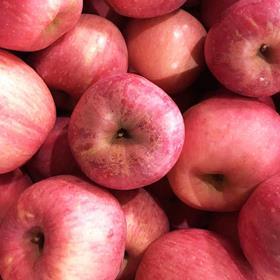
The 2020/21 Chinese Fuji apple season has been labelled “disappointing” by the country’s growers, with numerous external hurdles to blame for the underwhelming performance.
In an end of season update released by Vanguard, the company reported slow sales due to a weakened domestic market, along with lower overall export volumes due to the pandemic. Increased ocean freight rates and container shortages exacerbated the issues.
“With these challenges packers still have high stock levels in their cold atmosphere storages which is later than preferred to move last season’s product,” read the report.
China has two primary Fuji apple growing regions. The Northwest (ShaanXi, ShanXi, and Xinjiang Province) area finished harvest at the end of September, while the Northeast (Shandong and Liaoning Province) completed harvest at the end of October.
Predictions indicate the 2021/2022 season will run 10 to 14 days late due to poor weather and slow market conditions.
Data pulled from the Chinese Apple Association puts the 2021/2022 total crop of Chinese apples at an estimated 45m tonnes, which is comparable to last year’s crop size.
Growers are predicting a 10 – 15 per cent reduction in this year’s crop size, a result of the freezing temperatures the region experienced in the Spring, coupled with the rain through August and September, causing imperfections to the apples appearance.
“As a result, we are seeing more lower grade apples coming off the packing lines and the prices for Class 2 and 3 is similar to last season, but the Class 1 product is seeing 40-50 per cent higher prices than last year,” said Vanguard.
“Last season, Class 1 fruit tallied 30 per cent of the crop, however this season will only be around 8-10 per cent. Class 2 and 3 are also experiencing reductions of 55-60 per cent compared from 60-65 per cent last season. The remaining is processing grade with an increase from 10 per cent last year to be 30 per cent on this year.”
With the increased volume of lower quality apples and vessel space shortages predicted, some packers are said to be hesitant to turn to cold storage. Packers foresee the yield for exporting apples to be 20-30 per cent down compared to last year.
Growers have high sales price expectations, but there is increasing tension between buyers and sellers in the region as growers do not want to sell Fuji apples at reduced prices and packers are looking at more low-grade product.
The higher labour costs, raw materials prices, and the stronger Yuan (Rmb) to US dollar paired with lower quality has many exporters and packers preparing for another challenging Fuji season ahead.



